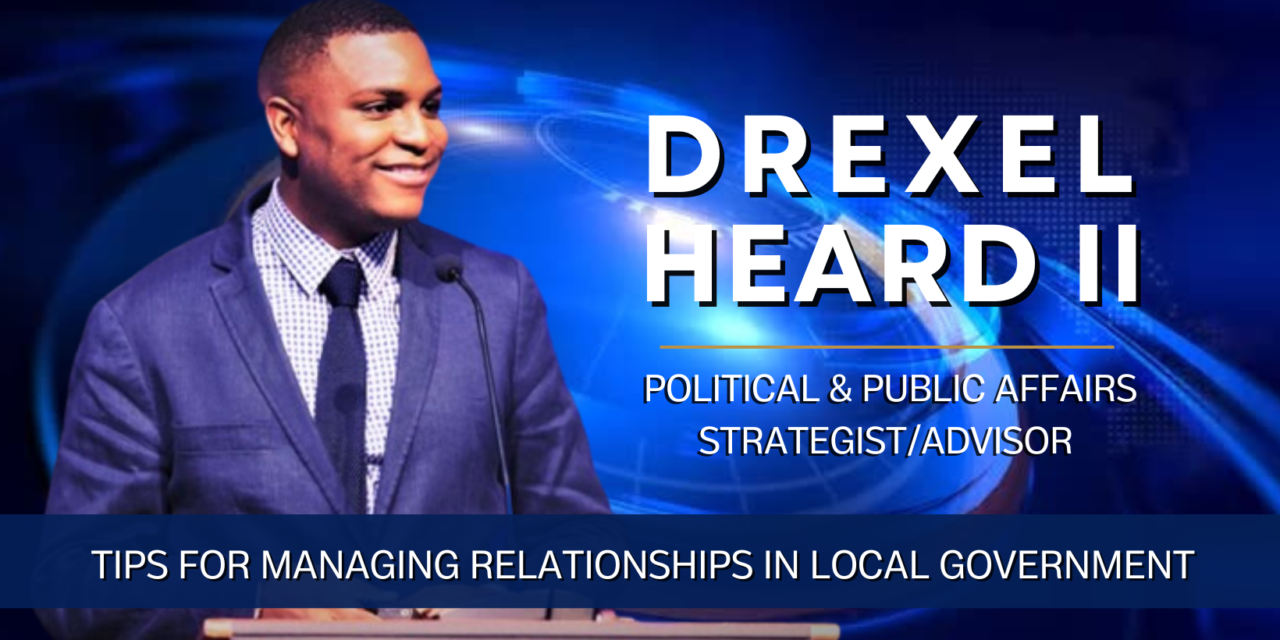Strategic communications expert Drexel Heard II provides insights into the effective management of a position in local government.
LOS ANGELES, CALIFORNIA, October 2022 — City councils, school boards, and county government offices are the first introduction to politics for many who rise to state and national positions. Drexel Heard II advises the opportunity for growth from the first role makes avoiding as many missteps as possible necessary.
But how?
Effectively managing relationships and establishing how the role will be handled from day one is the best approach.
Being responsive, handling proactive and reactive communications with honesty and integrity, understanding the role, and practicing mutual respect are great ways to get started.
Communication best practices
A mistake often made by local government officials is not setting a communication policy from the beginning, explains Drexel Heard II.
Many council members, school board members, county commissioners, and even state officers do not have the benefit of individual staff or shared staff to help shoulder the burden of media outreach, media responses, and timely communications with constituents.
Sometimes the inclination is to be very open and available when things are going well and then avoid answering media inquiries and the phone in general if a crisis arises. Establishing policies at the start of a role can help have a plan in place during a stressful time to ensure bandwidth for essentials.
Set up office hours, even if it is only a few hours a couple of times per week, to attend phone or personal appointments with constituents who need to discuss issues. When staff is available, they can field some requests and escalate when appropriate. Budgeting time effectively leaves time for better managing other relationships with the mayor, city manager, or council.
Use any tools, such as a shared secretary, to help draft communications like press releases and set up media appearances. While fostering close relationships with the media is helpful, it’s essential always to share thoughtful responses to inquiries and maintain professionalism to help set a precedent in a more difficult situation.
Be direct and honest. If there is an issue still being taken under advisement or unable to be discussed at a given time due to regulations or policies, this can be explained by pointing to a policy or procedure. This establishes discretion and provides insight into why speaking further is not possible versus sending calls to voice mails and issuing a basic “no comment.”
Effective leadership
Drexel Heard II learned effective leadership requires understanding the ins and outs of a given role and operating within those parameters to better the lives of local citizens while always looking for ways to grow.
Most governmental positions at any level feature basic training in ethics and legal concerns that can be encountered in the role. Master these areas immediately. At the same time, cultivate leadership skills, such as building consensus for new initiatives, connecting with the community through regular officer hours and forums, and respecting other elected officials as well as public employees in payroll positions.




